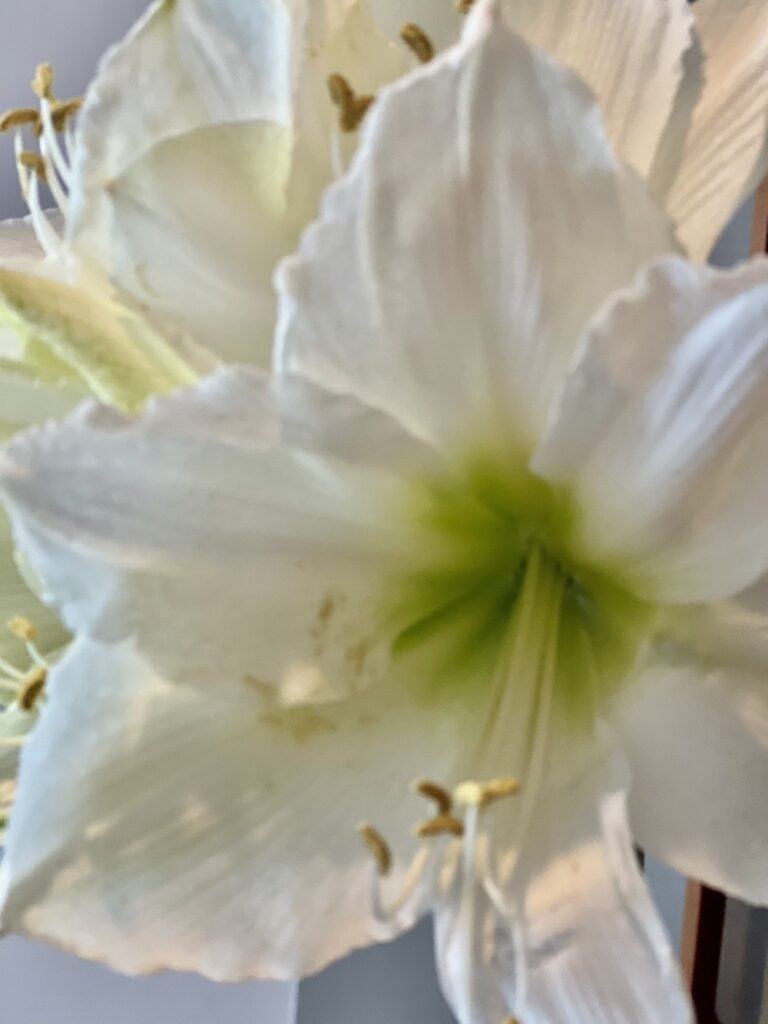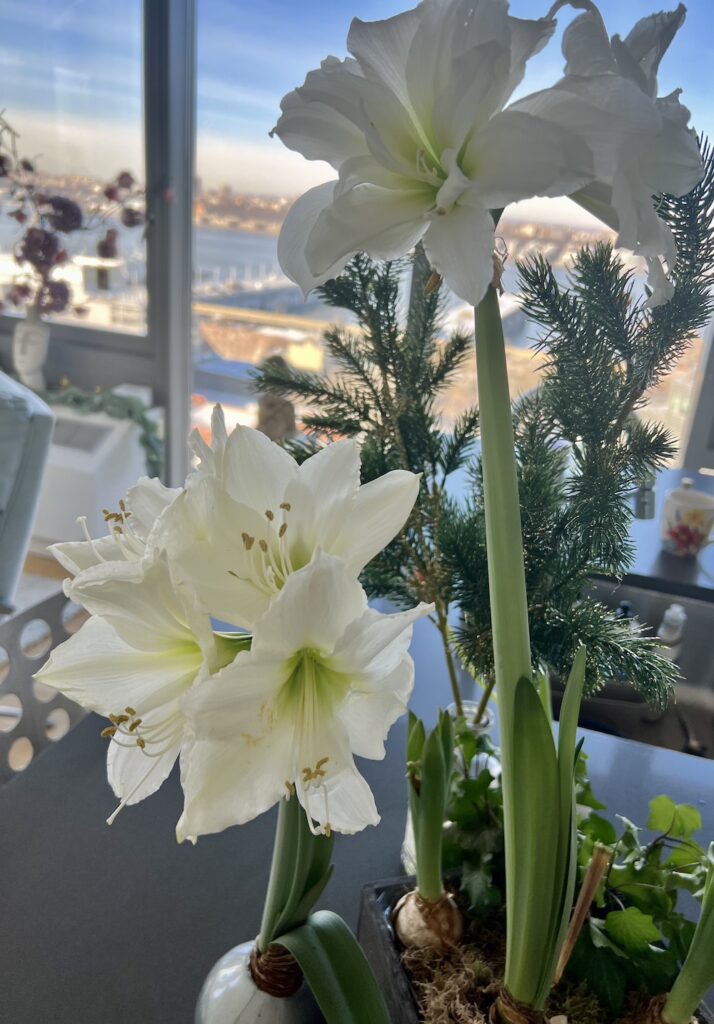Late Blooming Amaryllis Teaches Life Lesson
By Jill Brooke

Do you know a late bloomer? Tag someone who like this amaryllis, blooms when they are ready, and isn’t in a rush. This beauty was supposed to bloom in December. But it decided to be fashionably late to the party. Is this amaryllis any less beautiful? Of course not.
Flowers teach us so much about life. They are never in a rush. They bloom when ready. Nor do they compete with other flowers. Confident in their own power, and individual style, they burst with blooms to beautify the world.
A late bloomer is defined as a person whose talents or capabilities are not visible to others until later than usual. The term is used metaphorically to describe a child or adolescent who develops slower than others in their age group, but eventually catches up and in some cases overtakes their peers. Or it could be an adult whose talent or genius in a particular field only appears later in life than is normal – in some cases only in old age.
Thomas Edison and Albert Einstein are examples of amazing talents whose abilities bloomed later than expected.

A late-blooming adult can come into their own at any chapter of life. Studies reveal that 20% of people try second careers and detour from their original life plans. Examples who have careers later in life that prosper include Julia Child.
Another is the author Rich Karlgaard, who wrote the wonderful book, “Late Bloomers.”
As he points out, “We live in a society where kids and parents are obsessed with early achievement, from getting perfect scores on SATs to getting into Ivy League colleges to landing an amazing job at Google or Facebook–or even better, creating a startup with the potential to be the next Google or Facebook or Uber. We see software coders becoming millionaires or even billionaires before age 30 and feel we are failing if we are not one of them.
“But there is good news. A lot of us–most of us–do not explode out of the gates in life.”
Rich Karlgaard had a mediocre academic career at Stanford (which he got into by a fluke), and then after graduation, worked as a dishwasher and typing temp before finally finding the inner motivation and drive that ultimately led him to start up a high-tech magazine in Silicon Valley, and eventually to become the publisher of Forbes magazine.
“There is a scientific explanation for why so many of us bloom later in life,” he says. “The executive function of our brains don’t mature until age 25–and later for some. In fact, our brain’s capabilities peak at different ages. We actually enjoy multiple periods of blooming in our lives.”
These are the thoughts I will be contemplating as I enjoy these luscious inspiring blooms.

Jill Brooke is a former CNN correspondent, Post columnist and editor-in-chief of Avenue and Travel Savvy magazine. She is an author and the editorial director of FPD and a contributor to Florists Review magazine. She also won the 2023 AIFD (American Institute of Floral Designers) Merit Award for showing how flowers impact history, news and culture
